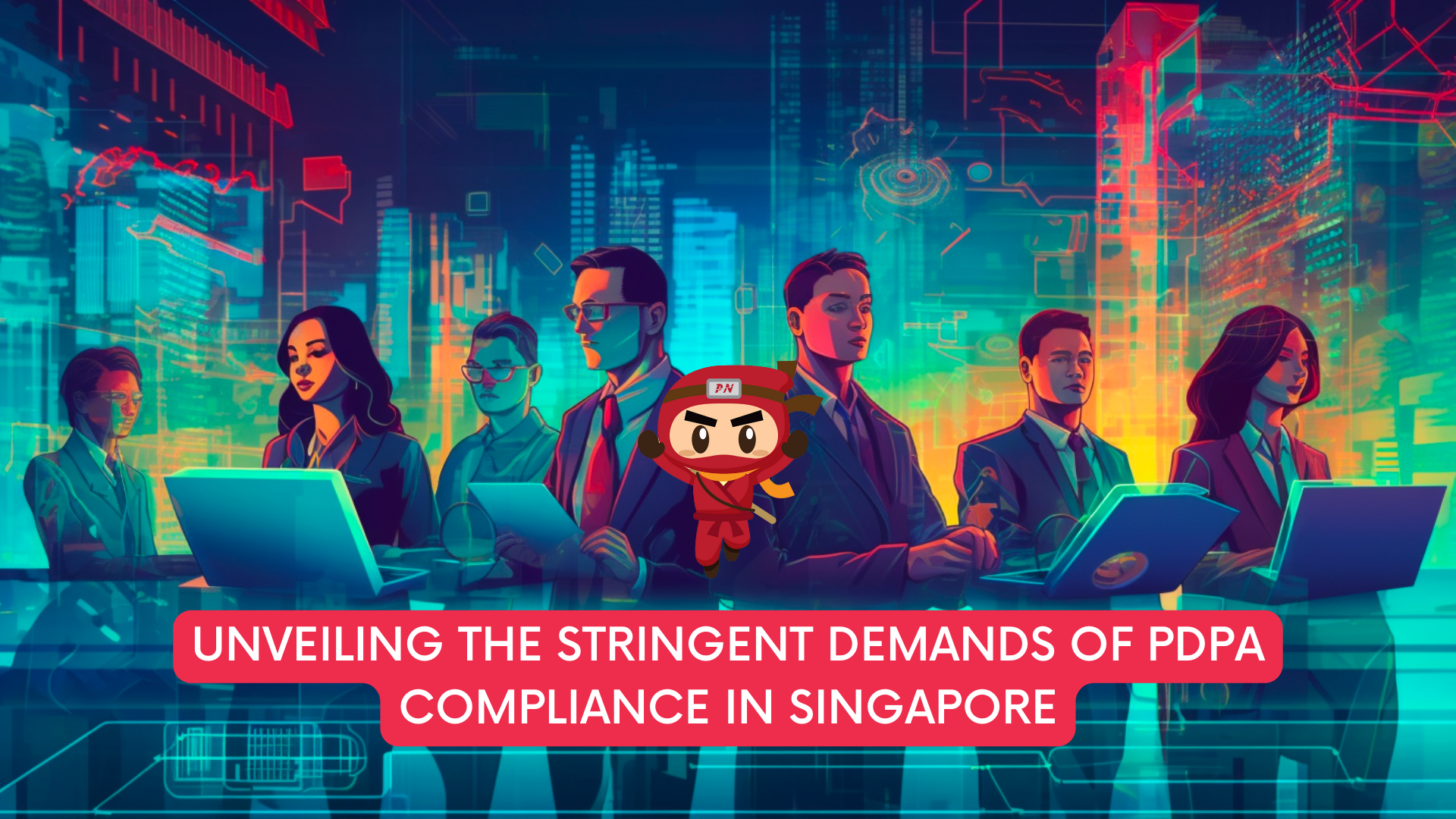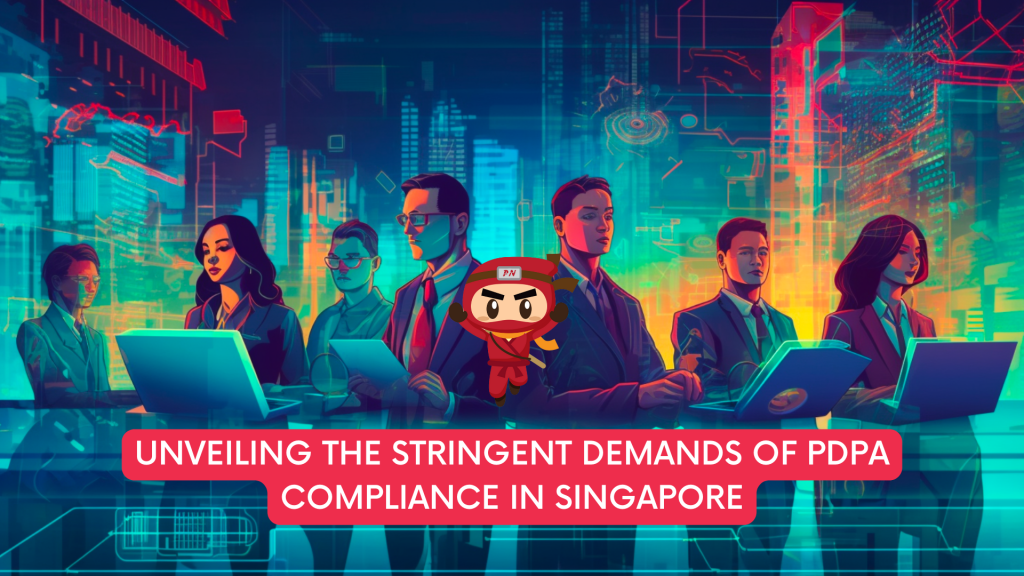KEEP IN TOUCH
Subscribe to our mailing list to get free tips on Data Protection and Cybersecurity updates weekly!







In today’s digital age, the protection of personal data has become a paramount concern for individuals and organisations alike. In Singapore, the Personal Data Protection Act (PDPA) sets forth stringent requirements for the collection, use, and disclosure of personal data. This article explores the importance of PDPA compliance and the significance of robust data protection measures in safeguarding personal data in Singapore.
With the rise in data breaches and privacy concerns, the PDPA plays a crucial role in ensuring that organisations handle personal data responsibly and ethically. The PDPA establishes guidelines for consent, purpose limitation, and accountability, providing a comprehensive framework that helps maintain the privacy and security of personal information.
Let’s delve into the stringent requirements of the PDPA and understand why it is imperative for organisations to prioritise compliance in order to protect personal data effectively.

The PDPA places a strong emphasis on protecting the privacy of individuals by regulating the collection, use, and disclosure of their personal data. Compliance with PDPA ensures that organizations handle personal data in a responsible and transparent manner, respecting the rights of individuals to control their own information.
By adhering to the PDPA’s requirements, organizations demonstrate their commitment to safeguarding individual privacy.
Compliance with the PDPA helps organizations build trust and confidence among customers, employees, and business partners. When individuals know that their personal data is handled in accordance with stringent data protection standards, they are more likely to engage and transact with organizations, ultimately enhancing business relationships and reputation.
PDPA compliance becomes a competitive advantage, distinguishing organizations as trustworthy custodians of personal information.
The PDPA encourages organizations to implement robust data protection measures to mitigate the risks of data breaches. By implementing security safeguards, conducting regular risk assessments, and establishing incident response plans, organizations can better protect personal data from unauthorized access, loss, or theft.
PDPA compliance ensures that organizations are well-prepared to handle data breach incidents and minimize the potential impact on affected individuals.
In an increasingly globalized world, cross-border data transfers have become commonplace. The PDPA sets out requirements and safeguards for transferring personal data outside of Singapore, promoting secure data transfers and protecting the interests of individuals.
By complying with these requirements, organizations can confidently engage in cross-border collaborations and business activities while upholding data privacy standards.
Non-compliance with the PDPA can lead to severe penalties and legal consequences for organizations. The Personal Data Protection Commission (PDPC) has the authority to impose fines, issue directions, and conduct investigations to ensure compliance.
By prioritizing PDPA compliance, organizations can avoid hefty financial penalties, damage to reputation, and legal disputes, thereby preserving their resources and focusing on their core business operations.
The stringent requirements of the PDPA play a vital role in protecting personal data and upholding privacy rights in Singapore. By embracing PDPA compliance, organizations not only demonstrate their commitment to data protection but also foster trust, mitigate data breach risks, facilitate cross-border data transfers, and avoid legal consequences. Upholding the principles of the PDPA is not only a legal obligation but also an opportunity for organizations to establish themselves as responsible custodians of personal data in the digital landscape.

Your appointed DPO can work with you on your PDPA compliance, ensuring that there will be policies in place to make sure that the handling of personal data is PDPA compliant. This includes promptly responding to the PDPC with their queries to expedite the investigations and prevent a harsher penalty from the Commission.
A Data Protection Officer (DPO) oversees data protection responsibilities and ensures that organisations comply with the Personal Data Protection Act (PDPA). Furthermore, every Organization’s DPO should be able to curb any instances of PDPA noncompliance as it is the officer responsible for maintaining the positive posture of an organisation’s cybersecurity.
DPOs complement organisations’ efforts to ensure that the organisation’s methods of collecting personal data comply with the PDPA. It also ensures that policies are set in place to make sure that there will be no instances of data breaches in the future.
Don’t wait any longer to ensure your organisation is PDPA compliant. Take our free 3-minute PDPA Compliance Self-audit checklist now, the same “secret weapon” used by our clients to keep them on track. Upon completion, we will send you the results so you can take the necessary action to protect your customers’ data. Complete the free assessment checklist today and take the first step towards protecting your customers’ personal data.